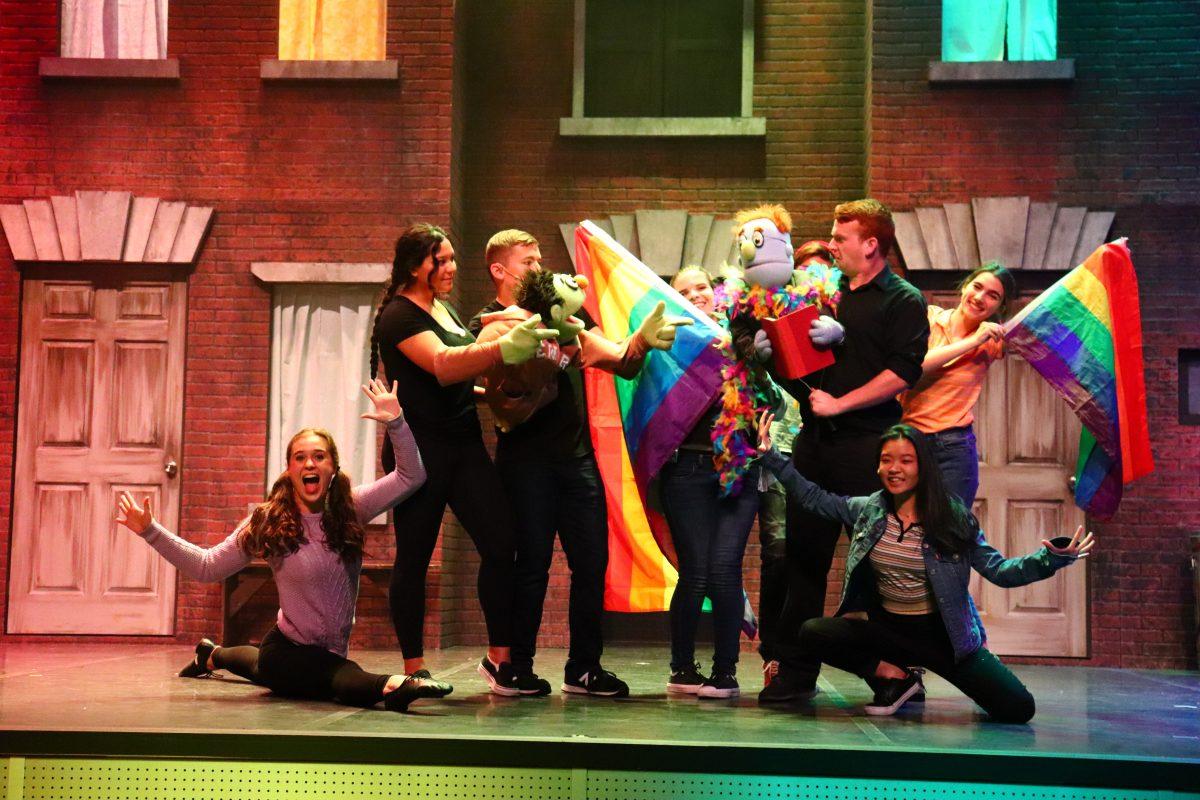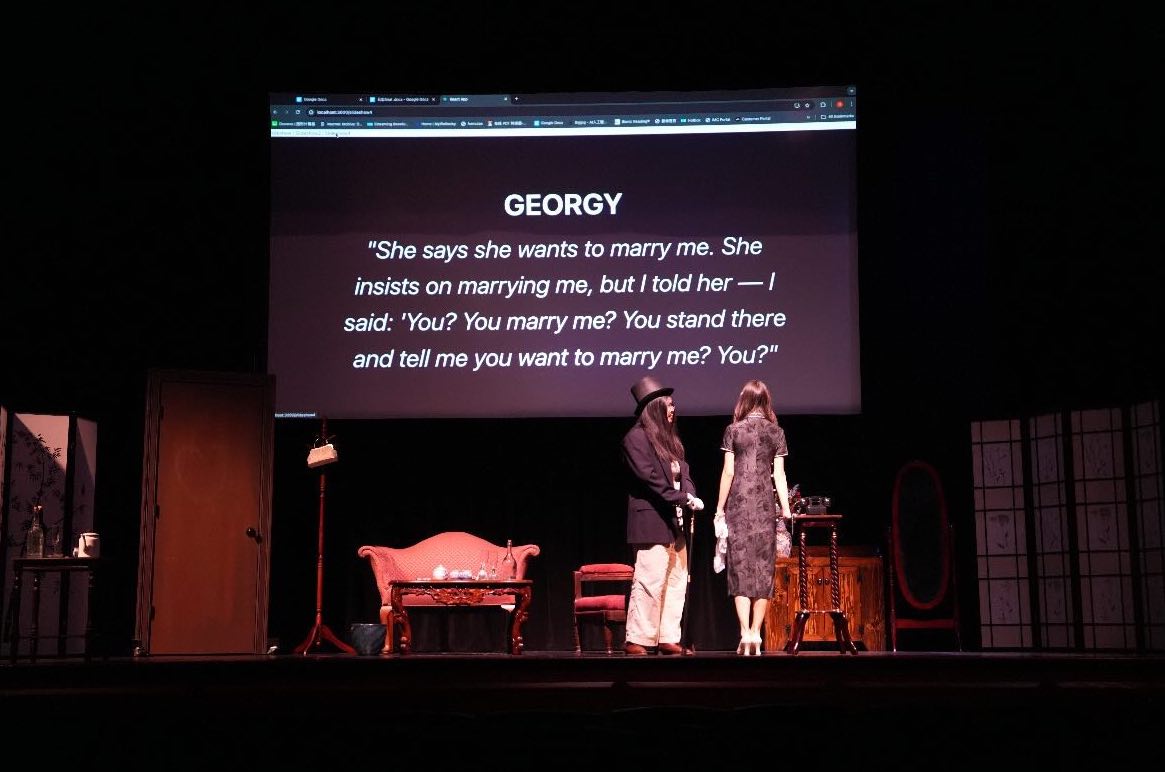This past Tuesday, Friday and Saturday night, the Babson Players (along with students from Wellesley College), performed their first show of the year, “Avenue Q.” The show attracted a large crowd and fervent participation from an audience that left the auditorium laughing and smiling.
“Avenue Q” is essentially an R-rated version of “Sesame Street,” touching upon classic “adult” subjects of rent, romance, purpose, and of course, porn. Like “Sesame Street,” “Avenue Q” attempts to educate its audience on the tough, and sometimes funny, moral dilemmas life throws at you. The musical opens with a puppet character named Princeton (Blake Samper ’21), an English major who is high on the euphoria of graduation and ready to make a difference in the world. Needing to find his own place, he wanders to Avenue Q – the rent on Avenue A was just too much – where he encounters puppets, people, and monsters just like him who don’t quite know how to live the most fulfilling life. “It Sucks to Be Me” is one of the first numbers of the show, and each character is given the chance to proclaim to the audience why their life is the “suckiest.” Among these characters is Kate Monster (Tiana Brote), whose naiveté is simultaneously adorable and cringeworthy. She develops a crush on Princeton that she doesn’t quite know how to pursue. Also on Avenue Q is Brian (Graham Erds), a failed comedian, and his headstrong fiancée, Christmas Eve (Jordan Wong), who just wants Brain to get a stable job.
Like Sesame Street, there are humans and puppets and monsters all coexisting. In Avenue Q, the characters Niki (Tom Escobar) and Rod (Tim Andrew) stand in as allusions to Ernie and Bert. Still, the friendship of the charming companions we remember is given a twist: in the song “If You Were Gay,” Nikki attempts to convince Rob it’s okay to embrace his identity, leaving the audience smiling and nodding along.
The genius of “Avenue Q” stems from its ability to address every-day situations and feelings that people try and suppress and throw them in the spotlight. Examples of this are the numbers “Everyone’s a Little Bit Racist,” “The Internet Is For Porn,” “You Can Be As Loud As The Hell You Want (When You’re Making Love),” and “Schadenfreude.” Yet it also calls to attention the innate narcissism of people living only for themselves. Princeton and others talk of finding their “Purpose” in life, yet they don’t comprehend the dangers of delving into this ever-lucrative “meaning of life.” Though hilarious and engaging, the musical inherits the task of educating the audience on the importance of helping others. Early on, Kate Monster proclaims to Princeton that it is her purpose in life to create a school just for monsters so they can learn and grow in a safe environment. Her dream only becomes a reality when Princeton sheds his selfishness and self-centered ambitions to ask the other characters — and the audience — for money to fund Kate Monster’s dream. When Princeton chooses selflessness, it is as though he is overcome by a dramatic gesture from above. A similar exaggerated phenomenon happens to the others when they too choose to act with abnegation.
Yes, Avenue Q teaches us all an important lesson, but as an audience member, I left the auditorium in awe of the talent of the performers and crew members. It’s one thing to be a great actor, and it’s another to be a great actor, singer and puppeteer. Most all the actors had to simultaneously control these giant furry puppets while keeping the audience engaged with their facial expressions and body language. I’m not an actor myself, but I assume most students of theatre don’t expect to be dealing with puppets when they sign up for a show; this truly emphasizes the talent of these students. Not only that, but most of the actors were underclassmen and women, including the director, Wellesley student, Hannah Klein ’21.
Thoroughly intriguing, vulgar and entertaining, “Avenue Q” started off the academic year in high spirits. As theatre does, it provided an escape into a world with flaws parallel to our own. Although the audience could forget their own struggles, they were often reminded of the universality of petty human struggles. Like all of us, the different characters attempt to understand what it means to live a successful life. They become so consumed by their own ambitions and spiritual missions, like Princeton, they lose track of what is really important: other people. The musical ends on the number, “For Now,” which reminds everyone that things may be good at the moment, but that can all change at the drop of a penny. For better or for worse. All we can do is sing along with the tune life plays.







